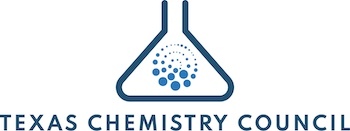Complete Story
09/12/2024
Megatrends Align to Drive Recycling, More Sustainable Solutions
Frank Esposito | Plastics News
September 4, 2024
LyondellBasell and Berry Global Group Inc. work in different sectors of the plastics world, but both are working to promote chemical recycling.
Executives with LYB, a materials supplier based in Houston, and Berry, a packaging leader based in Evansville, Ind., spoke at the Advanced Recycling Summit, Aug. 26-27 in Cuyahoga Falls.
Megatrends in political, social, economic and technological areas "are aligning to drive the packaging industry to more sustainable solutions," said Jon Konen, advanced recycling and biofeedstocks manager with LYB.
"The biggest thing we face today is lack of supply," he added. "There's urgent demand for recycled and renewable based packaging."
To help meet this demand, LYB is assembling a mechanical recycling plant with more than 300 million pounds of annual capacity in Jurupa Valley, Calif. LYB acquired the plant and its assets earlier this year from PreZero US Inc. The expanded facility will recycle rigid plastics and is expected to open in 2025.
In late 2023, LYB finalized plans to build the firm's first industrial-scale chemical recycling plant in Wesseling, Germany. The plant will have annual capacity of more than 110 million pounds. Konen said similar plants could be built in Houston.
Also in Houston, LYB is part of Cyclyx International, a joint venture with ExxonMobil and Agilyx that's building a chemical recycling facility there. The project will have annual capacity of almost 300 million pounds of plastic feedstock for chemical and mechanical recycling, with ExxonMobil and LyondellBasell holding offtake rights. It's expected to start production in mid-2025.
In sustainable products, Konen said LYB now has three families of Circulen materials available. Those materials were launched in 2021 and can be made via mechanical recycling, chemical recycling or by using recycled content material. LYB is a major supplier of polyethylene and polypropylene resins, as well as North America's largest compounder.
At Berry, the firm has sourced sustainable packaging in cups for Wendy's restaurants, said Robert Flores, the firm's vice president of sustainability. Berry also has made several types of sustainable packaging for the European food market, he added.
Mechanical recycling can be used for bottles, pails and similar items, but chemical recycling allows processors to recycle food contact items such as bags and film. "We're working on the snack aisle, refrigerated [food] and quick service," Flores said.
But he added the technology has been challenged by "negative media coverage," leading some Berry customers not to announce the role of chemical recycling in their packaging.
"It's important to educate and align to capture the benefits of advanced recycling," Flores said.
In a recent sustainability report, Berry officials said the firm was able to reach two key greenhouse gas emissions reduction targets two years ahead of schedule by increasing its use of renewable energy. Berry reached its short-term goal of reducing both Scope 1 and Scope 2 GHG emissions by 25 percent in 2023 compared with a 2019 baseline.
Scope 1 represents direct GHG emissions from company operations and Scope 2 represents emissions from energy use. Berry has committed to net zero emissions by 2050, and in the interim cut Scope 1 and 2 emissions by 25.6 percent in 2023 compared with 2019.
Officials have said Berry is one of the world's largest plastic recyclers, with the capacity to process 350 million pounds of post-consumer and post-industrial plastics per year in 2023. That's up from 300 million pounds for 2022 and 220 million pounds in 2020.

